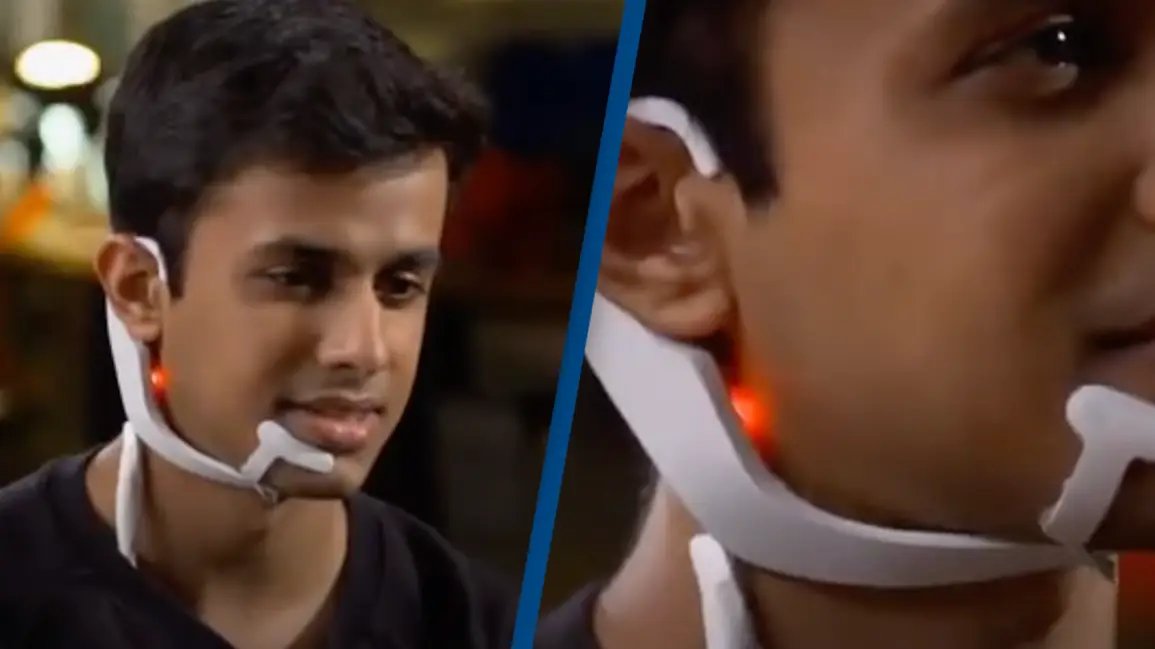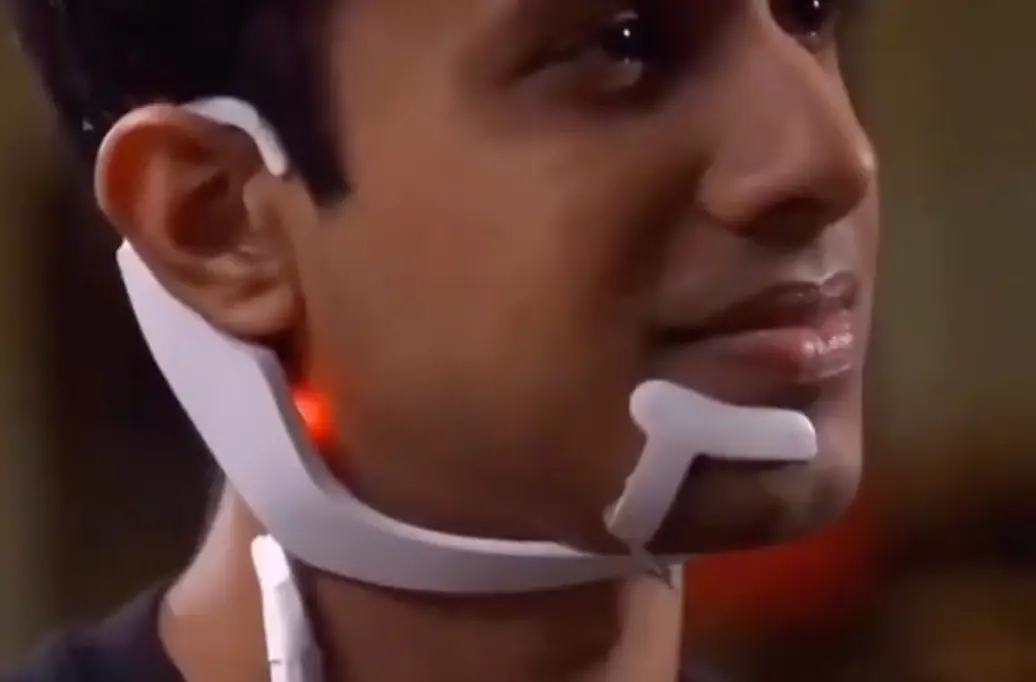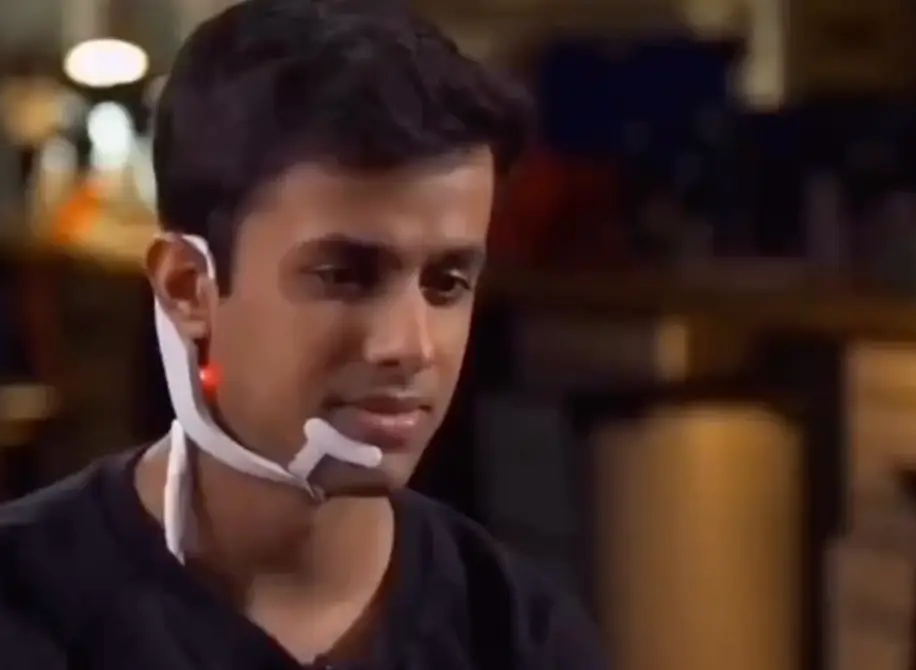
A Massachusetts Institute of Technology (MIT) student has created a device that allows humans to communicate with machines using our minds - and it truly is incredible.
Arnav Kapur created a device called AlterEgo, which is a wearable type of headset that allows users to communicate with technology without even speaking a word.
So how does it work?
Advert
The device records signals when the user hears or thinks of a particular word. This information is then sent to machines which use the internet to find the answer.
It's kind of like having Google in your head, which is pretty damn incredible.
Without speaking, typing or doing anything at all, the device is able to search the internet for the correct answer before feeding back the information via skull vibrations into the inner ear.
Apparently, the answer presents itself in a similar way to a person's internal voice, but without interfering with their 'usual auditory perception'.

It can search for info, solve maths equations and provide answers to all kinds of different questions.
"This enables a human-computer interaction that is subjectively experienced as completely internal to the human user—like speaking to one's self," MIT Media Lab explains.
"... This enables a user to transmit and receive streams of information to and from a computing device or any other person without any observable action, in discretion, without unplugging the user from her environment, without invading the user's privacy."
In a video of the device in action, Kapur is asked to provide the answer to a ridiculously difficult maths calculation, which he does no problem.

He's then asked to name the largest city in Bulgaria, as well as providing the population of the region, too - which, of course, he answers correctly.
Kapur says the idea is to basically have the entire internet in his head.
But, another focus is to help support those with speech disorders, such as those who have been diagnosed with neurological disorders.
"A primary focus of this project is to help support communication for people with speech disorders including conditions like ALS (amyotrophic lateral sclerosis) and MS (multiple sclerosis)," MIT explained.
"Beyond that, the system has the potential to seamlessly integrate humans and computers - such that computing, the Internet, and AI would weave into our daily life as a 'second self' and augment our cognition and abilities."
This is truly mind-boggling.
Topics: Technology
